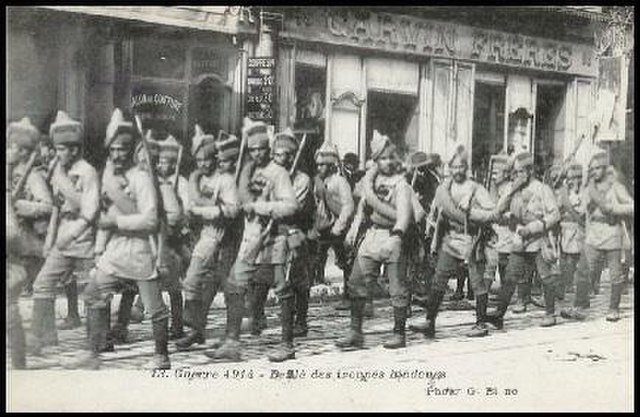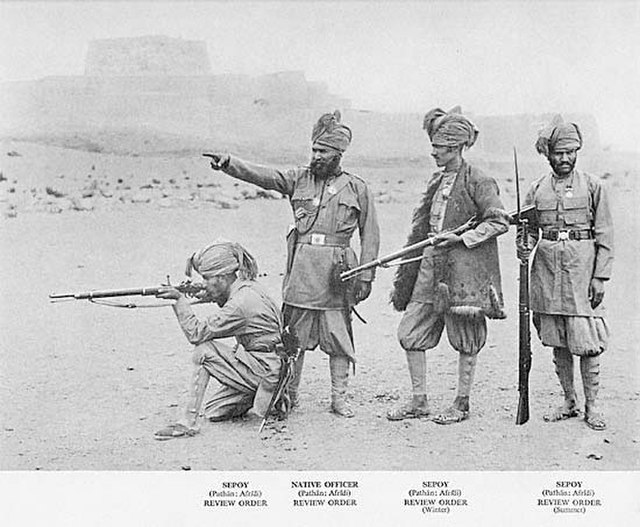The Establishment (Pakistan)
The Establishment, also known as military establishment, is a term used in Pakistan which refers to the deep state cooperation of the Pakistan Armed Forces, the Pakistani intelligence community and other pro-military government officials and civilians. Responsible for various military coups, the military-dominated Establishment has directly ruled Pakistan for nearly half of its existence since its creation in 1947, while frequently exerting covert dominance over the political leadership during the remainder. The Establishment in Pakistan includes the key decision-makers in the country's military and intelligence services, national security, as well as its foreign and domestic policies, including the state policies of aggressive Islamization during the military dictatorship of General Muhammad Zia-ul-Haq.
Anti-establishment powershow in Bannu attended by thousands of people.
The Pakistan Armed Forces are the military forces of Pakistan. It is the world's sixth-largest military measured by active military personnel and consist of three formally uniformed services—the Army, Navy, and the Air Force, which are backed by several paramilitary forces such as the National Guard and the Civil Armed Forces. A critical component to the armed forces' structure is the Strategic Plans Division Force, which is responsible for the maintenance and safeguarding of Pakistan's tactical and strategic nuclear weapons stockpile and assets. The President of Pakistan is the Commander-in-Chief of the Pakistan Armed Forces and the chain of command is organized under the Chairman of the Joint Chiefs of Staff Committee (JCSC) alongside the respective Chiefs of staffs of the Army, Navy, and Air Force. All branches are systemically coordinated during joint operations and missions under the Joint Staff Headquarters (JSHQ).

A military parade led contingent of army, followed by the navy and air force, in Shakarparian Hills in Islamabad in 2018.
Punjabi Muslims of the British Indian Army. The roots of the Pakistani military trace back to the British Indian Army, which included many personnel from present-day Pakistan.
Pictured are troops of the Khyber Rifles, now part of the Frontier Corps, striking a pose, c. 1895.
Pakistani soldiers being decorated after a tour of duty with the UN in the DR Congo





